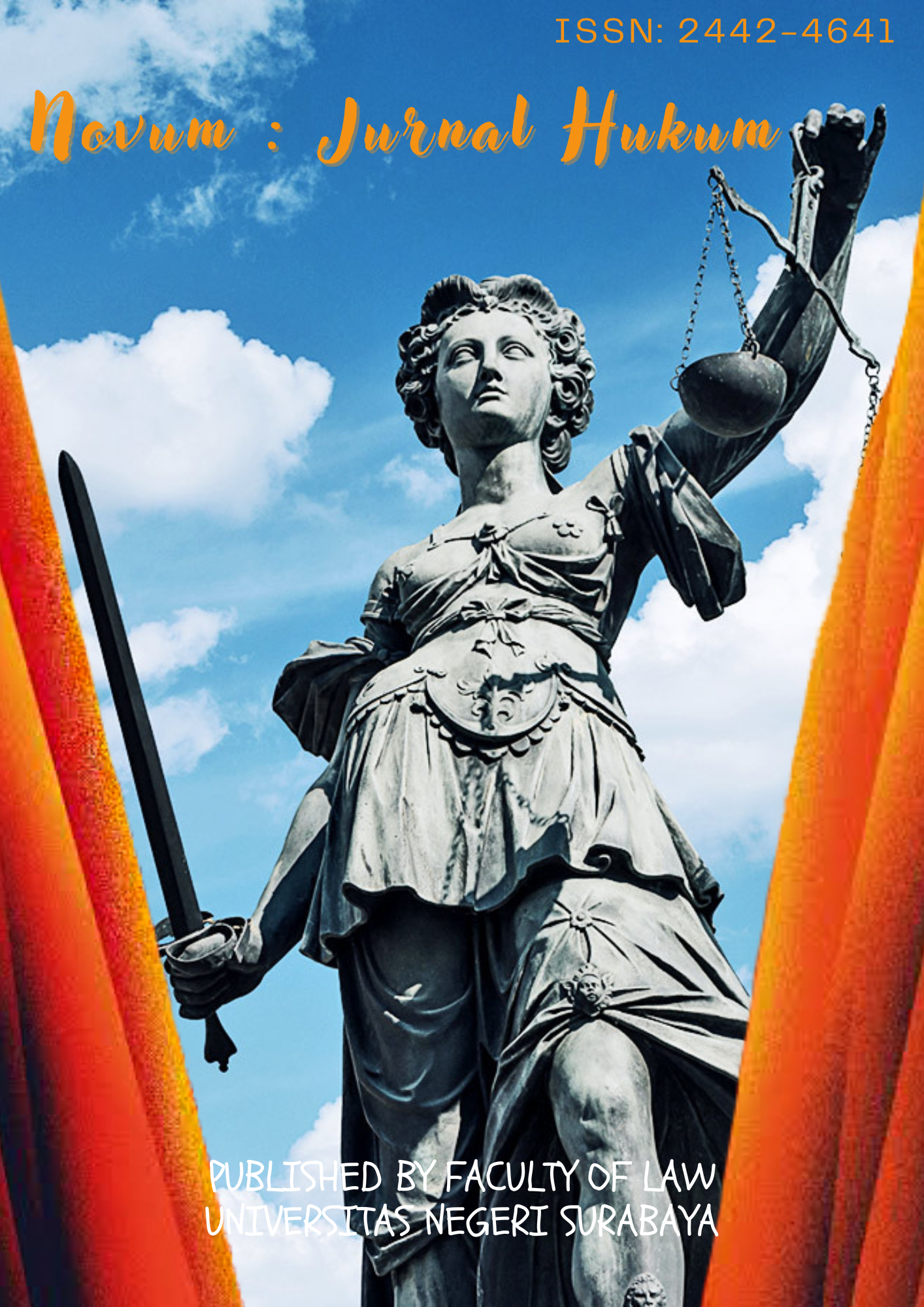Problematika Yuridis Putusan Mahkamah Konstitusi Nomor 20/PUU-XIV/2016 Terkait Alat Bukti Penyadapan
DOI:
https://doi.org/10.2674/novum.v7i1.31321Downloads
Download data is not yet available.
 Abstract views: 421
,
Abstract views: 421
, PDF Downloads: 325
PDF Downloads: 325



